 Corrosion: the gradual destruction of metal due to a chemical or electro-chemical reaction to the environment. Or, to look at a case you’re probably more familiar with, metal that rusts because of the presence of water. There are different types of corrosion, but when we’re talking about a residential water heater, it’s the corrosion that occurs because of the mix of oxygen and water in contact with metal.
Corrosion: the gradual destruction of metal due to a chemical or electro-chemical reaction to the environment. Or, to look at a case you’re probably more familiar with, metal that rusts because of the presence of water. There are different types of corrosion, but when we’re talking about a residential water heater, it’s the corrosion that occurs because of the mix of oxygen and water in contact with metal.
A water heater is designed to resist corrosion through a number of methods. The interior of its hot water tank is lined with glass. A pressure relief valve on the top of the tank allows for an air cushion without allowing air into the tank itself. A component called the sacrificial anode rod that runs through the tank draws the forces of corrosion to it so that the rod corrodes rather than the rest of the tank.
However… yes, a water heater can start to corrode. If you notice corrosion on your water heater, does it mean the system has to be replaced?

 Prevention is always better than having to deal with a plumbing repair problem as it happens. If you can catch a plumbing issue early, you’ll be able to avoid both a costlier repair job down the road and major consequences that can lead to water damage in your house or vital fixtures (such as the toilet) no longer working.
Prevention is always better than having to deal with a plumbing repair problem as it happens. If you can catch a plumbing issue early, you’ll be able to avoid both a costlier repair job down the road and major consequences that can lead to water damage in your house or vital fixtures (such as the toilet) no longer working.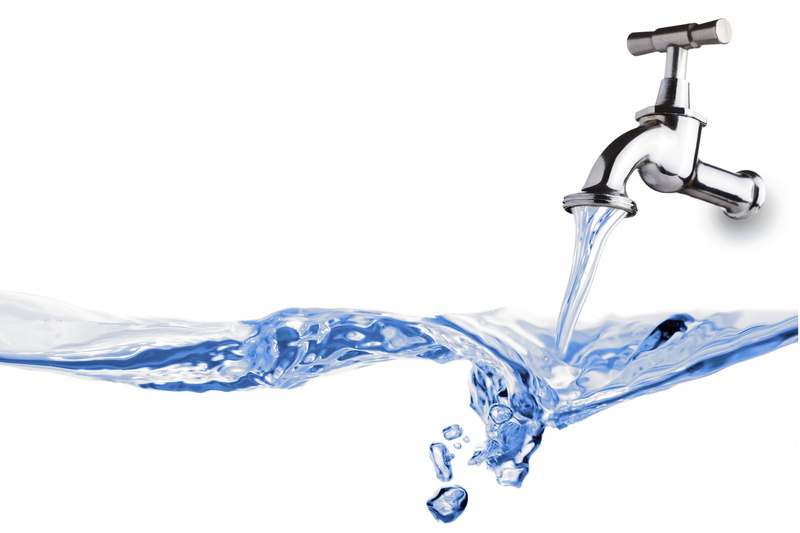 Hard water is one of the most common types of water quality issues homes encounter. No matter how well water is purified at a water treatment plant, hard water minerals (magnesium and calcium) can seep through ground water and into the municipal pipes carrying the freshwater to homes.
Hard water is one of the most common types of water quality issues homes encounter. No matter how well water is purified at a water treatment plant, hard water minerals (magnesium and calcium) can seep through ground water and into the municipal pipes carrying the freshwater to homes.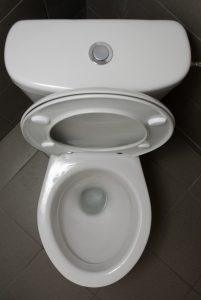 There are sounds you expect to hear from appliances and fixtures in your house, and you know how long these sounds should continue. For example, after a toilet is flushed, you should hear the sound of running water for about a minute afterwards. This is water coming from the feed line to fill up the tank to a set level, ready to rush down into the bowl for the next flush.
There are sounds you expect to hear from appliances and fixtures in your house, and you know how long these sounds should continue. For example, after a toilet is flushed, you should hear the sound of running water for about a minute afterwards. This is water coming from the feed line to fill up the tank to a set level, ready to rush down into the bowl for the next flush.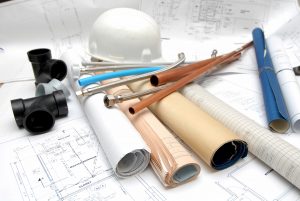 We take pride in keeping current with the best plumbing technology available today, both to serve
We take pride in keeping current with the best plumbing technology available today, both to serve 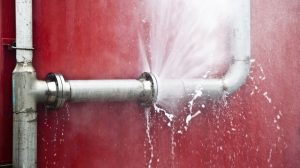 A plumbing mishap can range from small leaks and clogs to major water damage from a busted pipe. All plumbing issues require attention, but flooding from a broken pipe is one that creates a justifiable sense of panic in homeowners. Water damage can add up to thousands of dollars in repair costs and lead to the loss of irreplaceable valuables.
A plumbing mishap can range from small leaks and clogs to major water damage from a busted pipe. All plumbing issues require attention, but flooding from a broken pipe is one that creates a justifiable sense of panic in homeowners. Water damage can add up to thousands of dollars in repair costs and lead to the loss of irreplaceable valuables.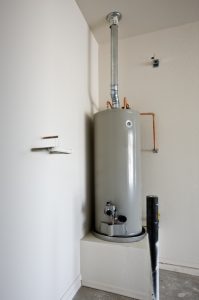 You never want to get caught without hot water for your home. It can mean going without showers and baths, and it also will bring a halt to a number of basic, everyday chores. In fact, you’ll never realize just how much you rely on your water heater through the average day… until you suddenly don’t have a working water heater!
You never want to get caught without hot water for your home. It can mean going without showers and baths, and it also will bring a halt to a number of basic, everyday chores. In fact, you’ll never realize just how much you rely on your water heater through the average day… until you suddenly don’t have a working water heater!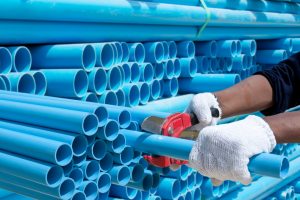 Pipes are what most people think of when they hear the word “plumbing.” This makes sense. Pipes are the essential part of what plumbing is, the transportation of water, sewage, and gas from one place to another.
Pipes are what most people think of when they hear the word “plumbing.” This makes sense. Pipes are the essential part of what plumbing is, the transportation of water, sewage, and gas from one place to another.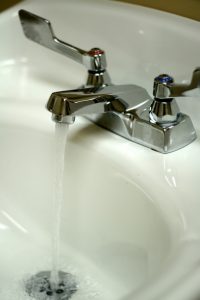 If the first thing that comes to mind when you think of the words water filtration is a pitcher with a water filter cartridge in it, you should know there are much more effective ways to provide clean water to your house. A simple water pitcher can do some good, but it certainly doesn’t help your whole home, and there are many impurities that may escape it. Point-of-use filters attached to individual faucets have the same drawbacks.
If the first thing that comes to mind when you think of the words water filtration is a pitcher with a water filter cartridge in it, you should know there are much more effective ways to provide clean water to your house. A simple water pitcher can do some good, but it certainly doesn’t help your whole home, and there are many impurities that may escape it. Point-of-use filters attached to individual faucets have the same drawbacks.